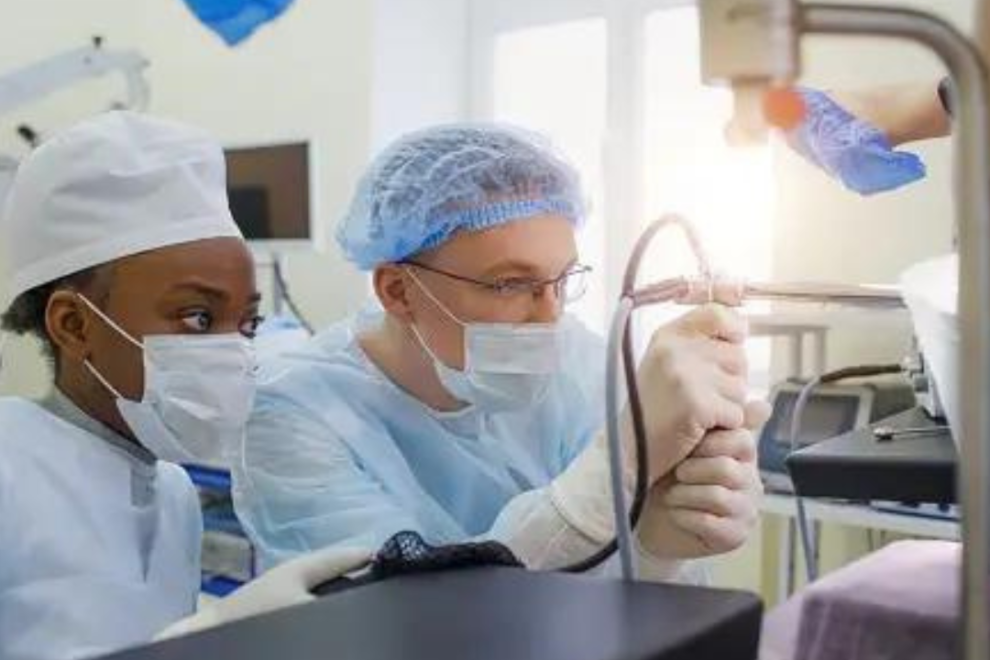Colonoscopy in India: Comprehensive Screening for Colorectal Health


Free Doctor Opinion
What is Colonoscopy ?
Colonoscopy is a procedure used to see inside the colon and rectum. Colonoscopy can detect inflamed tissue, ulcers, and abnormal growths. The procedure is used to look for early signs of colorectal cancer and can help doctors diagnose unexplained changes in bowel habits, abdominal pain, bleeding from the anus, and weight loss.
How to Prepare for Colonoscopy ?
The doctor usually provides written instructions about how to prepare for colonoscopy. The process is called a bowel prep. Generally, all solids must be emptied from the gastrointestinal tract by following a clear liquid diet for 1 to 3 days before the procedure. Patients should not drink beverages containing red or purple dye.
Acceptable liquids include :
- fat-free bouillon or broth
- strained fruit juice
- water
- plain coffee
- plain tea
- sports drinks, such as Gatorade
- gelatin
A laxative or an enema may be required the night before colonoscopy. A laxative is medicine that loosens stool and increases bowel movements. Laxatives are usually swallowed in pill form or as a powder dissolved in water. An enema is performed by flushing water, or sometimes a mild soap solution, into the anus using a special wash bottle.
Patients should inform the doctor of all medical conditions and any medications, vitamins, or supplements taken regularly, including :
- aspirin
- arthritis medications
- blood thinners
- diabetes medications
- vitamins that contain iron
Driving is not permitted for 24 hours after colonoscopy to allow the sedative time to wear off. Before the appointment, patients should make plans for a ride home.
Why is Colonoscopy done?
This test may be done for a variety of reasons. Most often it is done to investigate the finding of blood in the stool, abdominal pain, diarrhea, a change in the bowel habits, or an abnormality found on colon x- ray or a CT scan. Certain individuals with previous history of polyps or colon cancer and certain individuals with family history of particular malignancies or colon problems may be advised to have periodic colonoscopies because they are at a greater risk of polyps or colon cancer.
What happens during Colonoscopy?
Colonoscopy is well-tolerated and rarely causes much pain. You might feel pressure, bloating or cramping during the procedure. Your doctor might give you a sedative to help you relax and better tolerate any discomfort.
You will lie on your side or back while your doctor slowly advances a colonoscope through your large intestine to examine the lining. Your doctor will examine the lining again as he or she slowly withdraws the colonoscope. The procedure itself usually takes 15 to 60 minutes, although you should plan on two to three hours for waiting, preparation and recovery.
In some cases, the doctor cannot pass the colonoscope through the entire colon to where it meets the small intestine. Although another examination might be needed, your doctor might decide that the limited examination is sufficient.
Risks
As with any procedure, there are risks associated with a colonoscopy. Before obtaining your consent for the procedure, your doctor will tell you about the potential risks.
- The most common side effects are cramping pain and abdominal swelling caused by the air used to inflate the colon during the procedure. This air is expelled shortly after the procedure, and these symptoms generally go away.
- If a biopsy is performed during the procedure, you may also note small amounts of blood in the bowel movements after the examination. This may last for a few days.
- Though rare, there is potential for the colonoscope to injure the intestinal wall, causing perforation, infection, or bleeding.
- Although this test is very helpful in finding the cause of many digestive diseases, abnormalities can go undetected at times. Factors that can affect this include the completeness of your bowel preparation before the procedure, the skill of the operator of the colonoscope, and your anatomy.
- When this test is performed, you will be given sedating medications to make the test more comfortable. Whenever a medication is given, a risk of an allergic reaction or side effect of the medication itself is present. These IV medications are given under medical supervision, and you will be monitored during the procedure to lessen the risk of medication-related complications.
Read Also :-
- Cervical Spine Surgery in India: Expert Care for Neck Pain and Spinal Health
- Chin and Cheek Augmentation in India: Enhance Your Facial Profile
- Sigmoidoscopy Surgery in India: Early Detection and Affordable Care for Colon Health
- Cholecystectomy (Gall Bladder Removal) in India: Safe & Affordable Surgery
- Carotid Endarterectomy in India: Advanced Stroke Prevention Surgery
- Carotid Artery Disease Surgery in India: Prevent Strokes with Advanced Care
Committed To Build Positive, Safe, Patient Focused Care.
High Quality
Care
Home Review
Medicine
All Advanced
Equipment
Book An Appointment

At We Care India, we offer complete medical services for your entire family, from routine check-ups to injury care, ensuring personalized attention and expert assistance for all your health needs.


